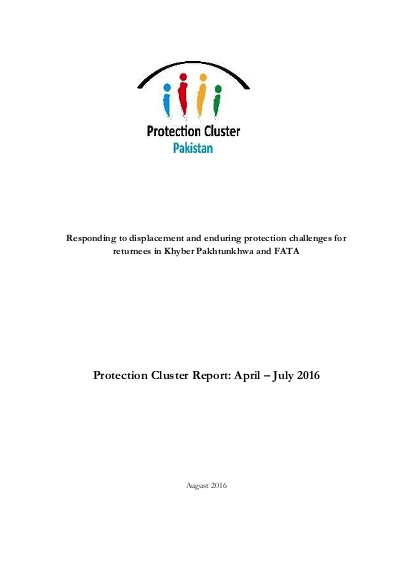
Since June 2015, the government of Pakistan took a decision to return Internally Displaced Persons (IDPs) to their areas of origin by November 2016. Encouraging signs, such as the de-notification of areas and provision of the unconditional cash grant to returnees, indicated the possibility for improvement of security and stability in the areas of origins.
However, some displaced persons have are waiting for the de-notification of the areas of origin. In the meantime, while the government has made progress in the rehabilitation in the areas of origins, conditions in some regions remain precarious.
Many returnees continue to be excluded in the return assistance, as they lack basic civil documentation that is required to receive the government return financial assistance. More than 140, 000 families have returned. The report asserts why, if adequate return assistance package and rehabilitation programs are slower implemented than the pace of return, the most vulnerable will be further marginalised.
The report notes how IDPs who missed the registration process discussed in detail has restricted access to return assistance to a significant number of returning IDPs, in particular, vulnerable families including, female head of households and their children excluded from return assistance. To illustrate the patterns of exclusion from the assistance of some vulnerable groups, the report discusses the process of registration, verification and de-registration and their linkage to structural protection issues that have been exacerbated by the conflict.